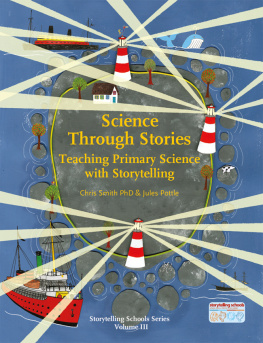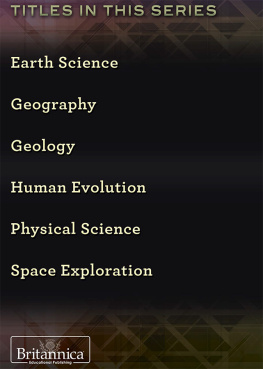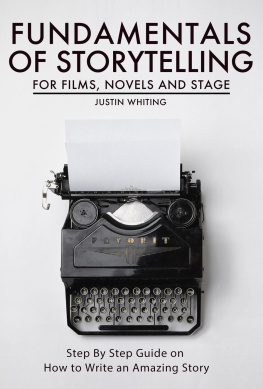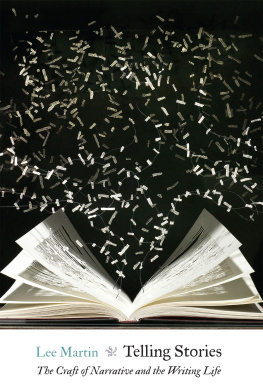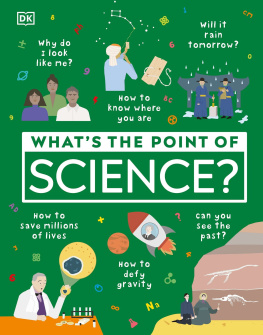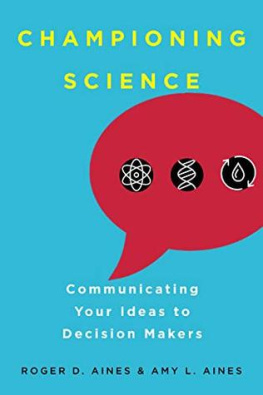
Telling Science Stories
A practical manual for anyone who wants to turn scientific facts into gripping science stories, this book provides an overview of story elements and structure, guidance on where to locate them in scientific papers and a step-by-step guide to applying storytelling techniques to writing about science.
In this book, Martin W. Angler outlines basic storytelling elements to show how and where fledgling science storytellers can find them in scientific output. Journalistic techniques like selection through news values and narrative interviews are covered in dedicated chapters. A variety of writing techniques and approaches are presented as a way of framing science stories in ways that are informative and compelling in different media from short films to news articles. Practical examples, selected interviews and case studies complement each chapter, with exercises and experimentation suggestions included for deeper understanding. Review questions at the end of each chapter cement the newly gained knowledge to make sure readers absorb it, with links to articles and online tools inviting further reading.
A valuable resource for students of journalism and science communication, as well as professional journalists, scientists and scientists-in-training who want to engage with the public or simply improve their journal papers. This book is a one-stop shop on science storytelling with a clear focus on providing practical techniques and advice on how to thrive as science writers and communicate science in all of its complexity.
Martin W. Angler is a science journalist, storyteller and science blog editor with a background in technology and journalism. His pieces have appeared in major UK, US, German, Italian and Swiss outlets. When Martins not writing, he runs workshops on science blogging, social media and storytelling.
First published 2020
by Routledge
2 Park Square, Milton Park, Abingdon, Oxon OX14 4RN
and by Routledge
52 Vanderbilt Avenue, New York, NY 10017
Routledge is an imprint of the Taylor & Francis Group, an informa business
2020 Martin W. Angler
The right of Martin W. Angler to be identified as author of this work has been asserted by them in accordance with sections 77 and 78 of the Copyright, Designs and Patents Act 1988.
All rights reserved. No part of this book may be reprinted or reproduced or utilised in any form or by any electronic, mechanical, or other means, now known or hereafter invented, including photocopying and recording, or in any information storage or retrieval system, without permission in writing from the publishers.
Trademark notice: Product or corporate names may be trademarks or registered trademarks, and are used only for identification and explanation without intent to infringe.
British Library Cataloguing in Publication Data
A catalogue record for this book is available from the British Library
Library of Congress Cataloging-in-Publication Data
Names: Angler, Martin W., author.
Title: Telling science stories : reporting, crafting and editing for journalists and scientists / Martin W. Angler.
Description: London ; New York : Routledge, 2020. | Includes bibliographical references and index.
Identifiers: LCCN 2019050425 (print) | LCCN 2019050426 (ebook) | Subjects: LCSH: Science journalism. | Science news. | Journalism--Technique.
Classification: LCC PN4784.T3 A54 2020 (print) | LCC PN4784.T3 (ebook) | DDC 070.4/495--dc23
LC record available at https://lccn.loc.gov/2019050425
LC ebook record available at https://lccn.loc.gov/2019050426
ISBN: 978-1-138-49056-7 (hbk)
ISBN: 978-1-138-49059-8 (pbk)
ISBN: 978-1-351-03510-1 (ebk)
To Katharina
This book survived three relationships and nearly its author. I reckon thanks are in order. Friends old and new: Philipp Volgger, Katia Cont, Jon Tennant, Marija Toi, Valentine Delattre, Choesang Tenzin, Kerstin Wonisch, Barbara Ebner, Simone Treibenreif, Michelle Rufaro Maziwisa and Sigrid Hechensteiner, for all your love, patience and time. You kept me sane. Bnz, this includes you. At Routledge: my editors Margaret Farrelly and Jennifer Vennall, for believing in this project, for your trust, patience and professionalism. At Edinburgh Napier University: my mentors Rachel Younger and Simon Pia, for all your inspiration, for your fantastic programme and for all those recommendation letters. Youre the reason Im writing books. Many thanks to Amanda Gefter, Giorgia Guglielmi, Jack Hart, Francesca Scandellari, Erin Barker, Tullio Rossi, Stephanie J. Green, Kirsten Grorud-Colvert and Heather Mannix for your wonderful contributions to my book. Now its also yours.
Writing is a journey, like most good stories. You should have a goal (people often call this something to say) that adds value for either very specific people or for the entire society. A universal truth, your theme, shines through your writing. Sometimes, this happens at the beginning, before you even start structuring your story. Sometimes, it will emerge while youre writing the story. Along the road, youll find many obstacles. Youll be daunted by empty pages, youll be annoyed by ideas youll find hard to connect and youll struggle to find balance between your day-to-day-life and your identity as a writer. All of that is normal. Critics may or may not like what you write, but that too is part of the game. In fact, the clearer your writing, the more youll provide them with a target. But if you stick to it, if you come up with a reporting and writing plan, and if you sit through it, youll end up having written something. To get there, as every storys protagonist, you have to be focused and active. There is nothing worse than being passive, both in real life and in writing. Itll get your nowhere. So be active and seize the opportune moment. Grab Caerus, the Roman god of opportunity, by the lock of hair on his forehead before hes gone. Two more considerations about him. First, Caerus embodies achieving the aim by recognising the right opportunities. Second, you know who fell in love with Caerus? Fortuna, the goddess of fortune and the personification of luck.
Thats probably just a ponderous way to say:
Dont dawdle.
Just write.
What you will learn in this chapter:
- Does science need story?
- Your brain on story
- The power of three
- Scientist or storyteller?
- Storytelling in scientific writing
- Ethical considerations
- Case study: A science story
These are the heydays of science journalism. People love to read about new discoveries, profiles of famous scientists and researchers who go on lifelong quests to save the world from terrible diseases. Science stories have made it to the front pages of the New York Times and the likes (alright, not every day, but at least sometimes). Science is hugely popular in the media, and there is a reason for that: the powerful combination of narratives and hard scientific facts. In school lessons, kids allegedly struggle to focus for more than a quarter of an hour. Attention spans are highly debated. Some claim they are as low as seven (goldfish-ish) and twelve seconds. But then again, have you seen anyone with trouble focusing in the movie theatre? Or reading a book? Quite the contrary. Binge-watching is on the rise among college students (Panda & Pandey 2017). Everybody loves stories. Were wired to love stories. We learn through stories. Our society passes on knowledge through stories. We experience catharsis through stories. We connect with strangers through stories. Because stories are inherently persuasive, they are so powerful. Facts and figures? Less so. But that doesnt mean that storytelling and science are mutually exclusive. And it doesnt mean science is boring and story is not. In fact, it turns out that combining the two is a powerful combination. This is the best weapon we have in the fight against fake news these days. Fake news are stories without facts. Facts without story are boring. What we need is science stories that combine both and we will win.



